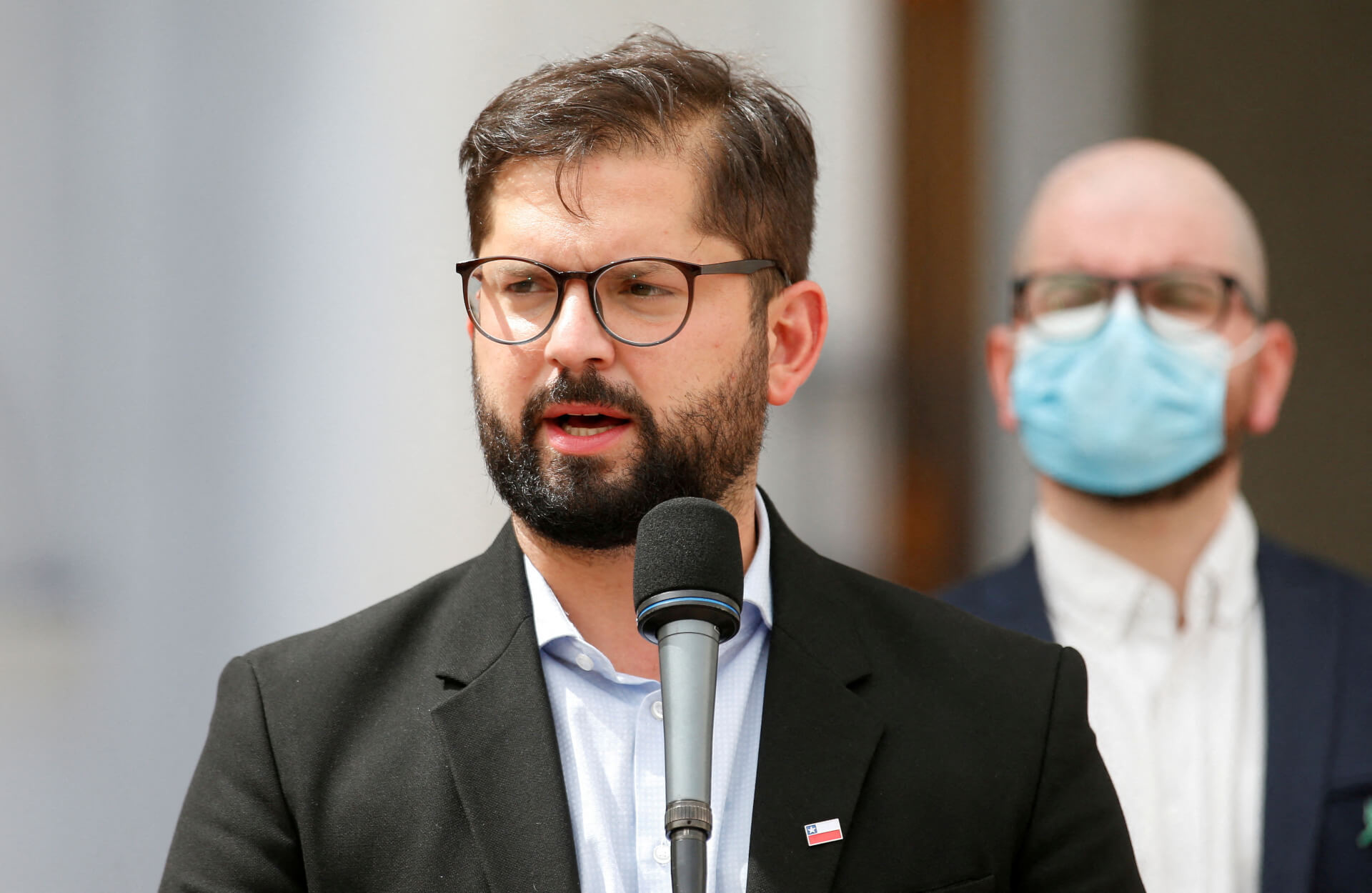Chilean President Gabriel Boric on Thursday announced plans to open an embassy in Palestinian territory and increase diplomatic engagement.
Speaking at a Christmas function held at the Palestine Club in Santiago, Boric said he would “elevate” Chile’s representation in Palestine by opening an embassy there. He noted that the move would underscore Chile’s commitment to the Palestinian cause and international laws.
Boric stressed that Chile “cannot forget” a community suffering and fighting Israel’s illegal occupation. He opined that Palestinians’ rights and dignity are “violated every day” and expressed anger at not being able to a Palestinian state on a map of the Middle East.
Palestinians are a “people that exist, that resist, and that has a history,” he said, adding that Chile “cannot be oblivious” to this fact.
Foreign Minister Antonia Urrejola said there is no timeline in place, noting that Chile “will raise the level of diplomatic representation, advancing towards the constitution of an embassy” in Ramallah. She also emphasised that Chile will continue to recognise Israel as an independent state.
“Whoever currently represents Chile in Palestine does have the rank of ambassador,” Urrejola said. Additionally, the FM announced that Chile would establish an honorary consulate in Bethlehem, “one of the main areas of origin of the Palestinian community in Chile.”
Chilean President Gabriel Boric has announced that during his presidency his country will open an embassy in occupied Palestine.
— Middle East Eye (@MiddleEastEye) December 23, 2022
Chile has the largest Palestinian population outside of the Middle East, estimated to be more than 300,000. pic.twitter.com/90CXnuSHIX
According to the Wafa news agency, the Palestinian Foreign Ministry “strongly commended” the move, saying it affirmed Chile’s support for international law and recognition of Palestinians’ right to establish an independent state.
Israel is yet to officially comment on Chile’s decision.
Boric’s announcement comes just two months after he refused to accept the credentials of Israeli Ambassador Gil Artzyeli because of “Israel killing [Palestinian] children.” Israel condemned Boric’s move, with its foreign ministry saying Chile’s actions “seriously harms the relations between the two countries.” It also summoned the Chilean ambassador to protest Chile’s “puzzling and unprecedented behaviour.”
Boric later accepted the Israeli ambassador’s credentials, with Artzyeli claiming the Chilean Foreign Ministry apologised to him and the Israeli government.
Earlier this week, Artzyeli told BioBioRadio that “defending the Palestinian cause does not mean being against Israel,” noting that “it is one thing to criticise Israel and another thing to demonise Israel.”
“Israel, like Chile, like any other country in the world, is subject to legitimate criticism,” he remarked.
Boric announced the decision to open an embassy in Palestine on the same day that incoming Israeli Prime Minister Benjamin Netanyahu announced the successful formation of a new government. Netanyahu said he sealed a deal with far-right and ultra-orthodox allies to form a 64-seat stable coalition that has been referred to as the most hardline government in Israel’s history.
Several members of Netanyahu’s coalition, including Itamar Ben Gvir, have supported expanding settlements in the West Bank and encouraged Israeli settlers to launch violence against Palestinians.
Boric, a left-wing leader who assumed office in March, has been a strong pro-Palestinian activist. As a lawmaker, Boric has supported boycotting Israeli goods from the Golan Height, West Bank settlements, and East Jerusalem.
He has faced strong criticism from Chile’s Jewish community, who have called him an “anti-Zionist” force, Boric has also been criticised for trying to blame Chilean Jews for Israel’s policies.
For instance, in 2019, when Chile’s Jewish community sent Boric a jar of honey for Rosh Hashana, he replied on Twitter: “I appreciate the gesture, but they could have asked Israel to return illegally occupied Palestinian territory.”
Furthermore, while he was a lawmaker, Boric backed a bill calling for a boycott of Israeli goods from occupied territories.
Chile has the largest population of Palestinians in South America, with around 300,000 people of Palestinian descent. It has a history of supporting the Palestinian cause, including opening a representative office in Ramallah in 1998 and recognising Palestine as a state in 2011.
Dozens of countries have representative offices in the West Bank but just five—Nicaragua, Oman, Tunisia, Uruguay, and Venezuela—have formal embassies there.

